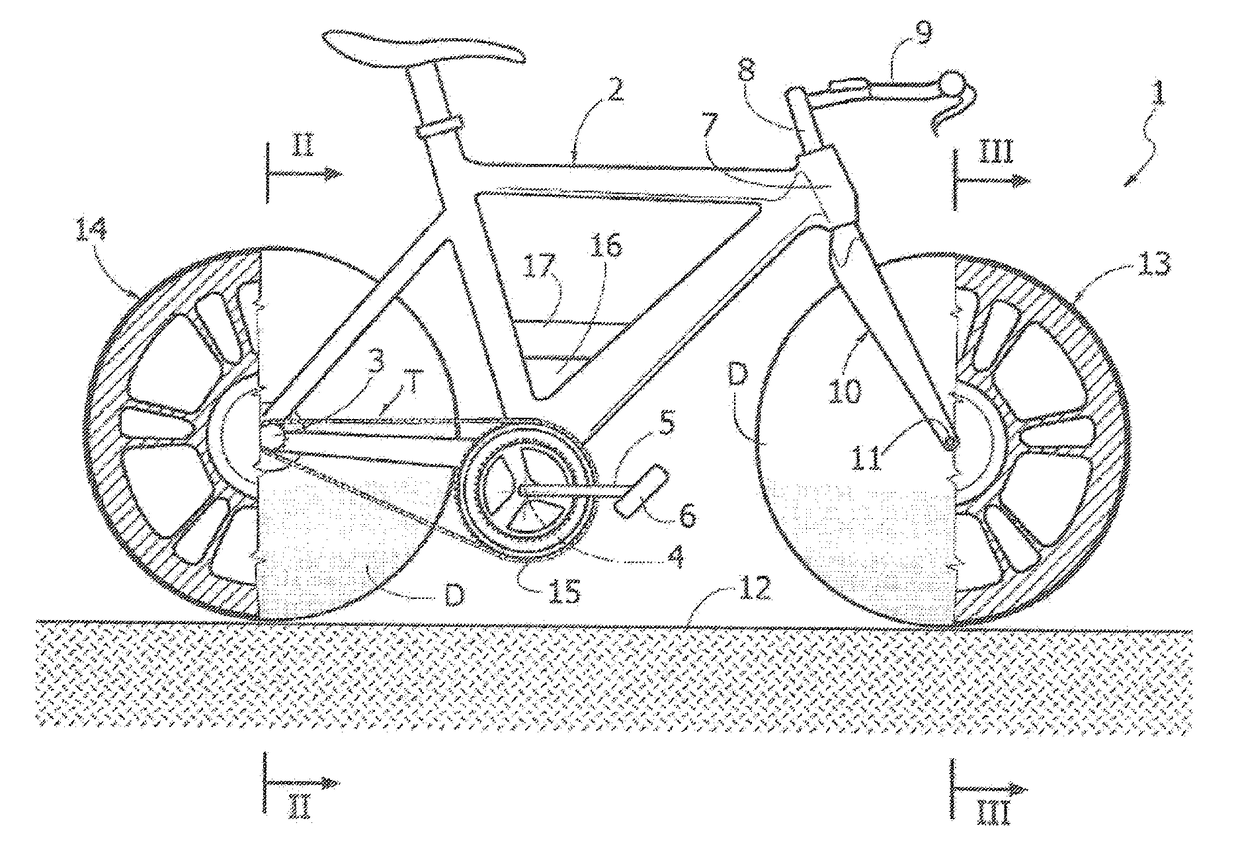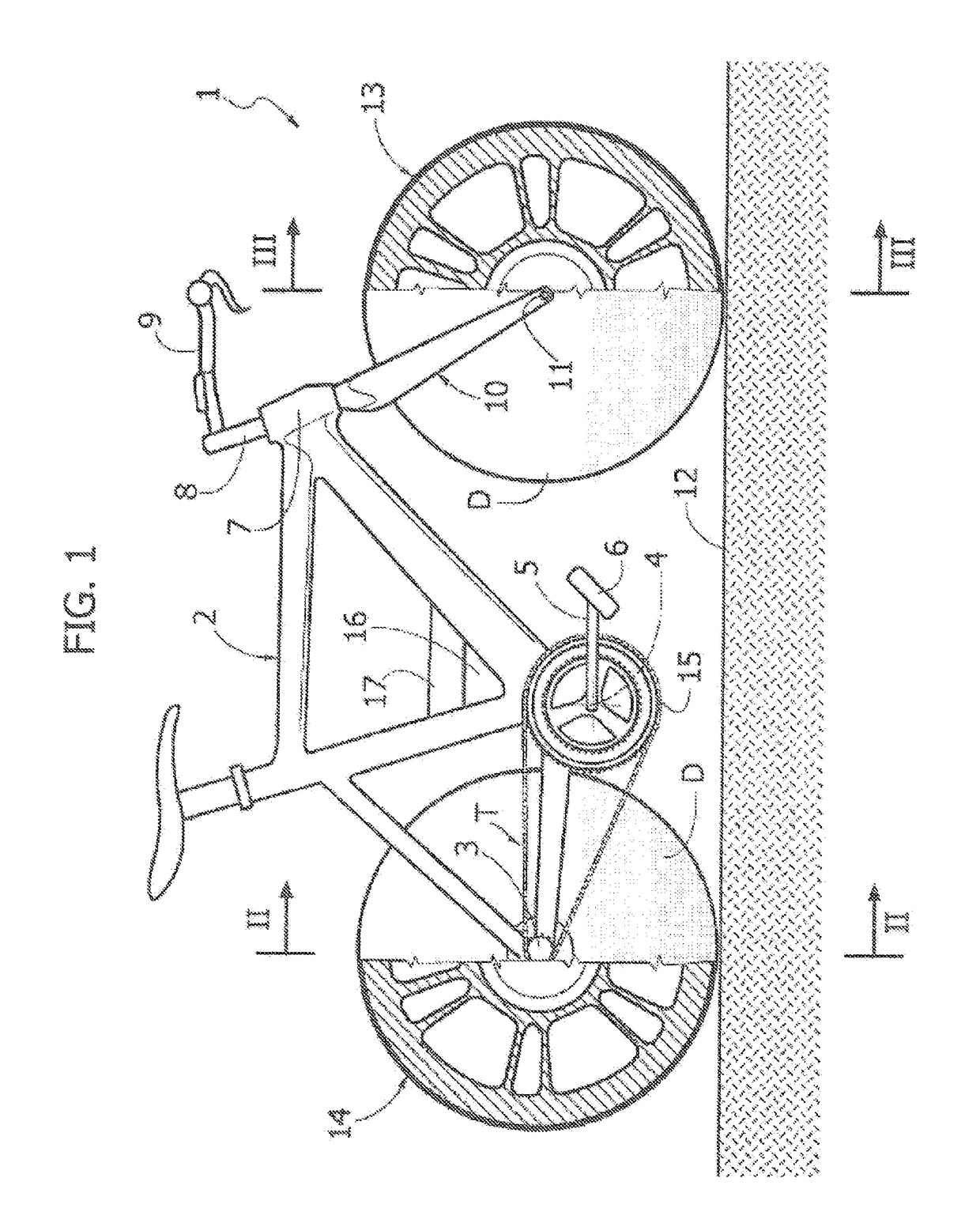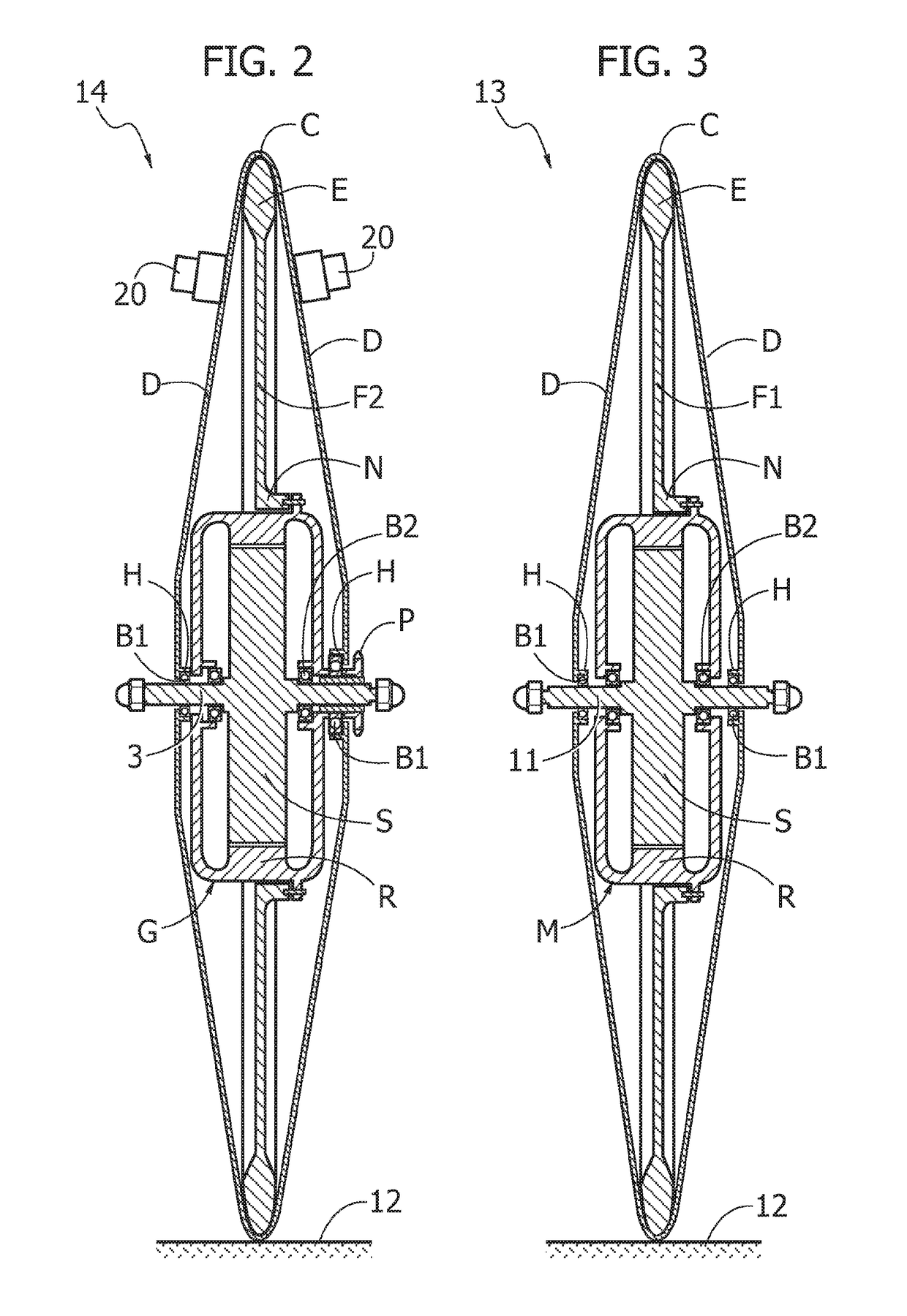Bicycle simulator for static or pseudo-static use
a simulator and bicycle technology, applied in the field of bicycle simulators, can solve the problems of boring use of bicycles, unsatisfactory training bicycles, and very widespread use, and achieve the effect of simple and low-cost operations
- Summary
- Abstract
- Description
- Claims
- Application Information
AI Technical Summary
Benefits of technology
Problems solved by technology
Method used
Image
Examples
Embodiment Construction
[0023]In FIG. 1, the reference number 1 designates a bicycle simulator according to the invention comprising a conventional bicycle structure, with a frame 2 that supports in a rotatable way a rear-wheel axle 3 and a crank axle 4 associated to which are two cranks 5, each provided with a respective pedal 6. Once again in a way similar to what is envisaged in a conventional bicycle structure, the frame 2 includes a head tube 7, rotatably mounted in which is a steering shaft 8, which is provided with a handlebar 9 and is connected in rotation to a fork 10, the branches of which have their ends that support in a rotatable way a front-wheel axle 11. The frame 2 carries a saddle, preferably provided with a height-adjustment device, of any known type.
[0024]In the case of the preferred embodiment illustrated herein, the bicycle simulator is supported on a floor 12 by means of a front supporting static wheel 13 and a rear supporting static wheel 14, which have a structure similar to that of...
PUM
 Login to View More
Login to View More Abstract
Description
Claims
Application Information
 Login to View More
Login to View More - R&D
- Intellectual Property
- Life Sciences
- Materials
- Tech Scout
- Unparalleled Data Quality
- Higher Quality Content
- 60% Fewer Hallucinations
Browse by: Latest US Patents, China's latest patents, Technical Efficacy Thesaurus, Application Domain, Technology Topic, Popular Technical Reports.
© 2025 PatSnap. All rights reserved.Legal|Privacy policy|Modern Slavery Act Transparency Statement|Sitemap|About US| Contact US: help@patsnap.com



